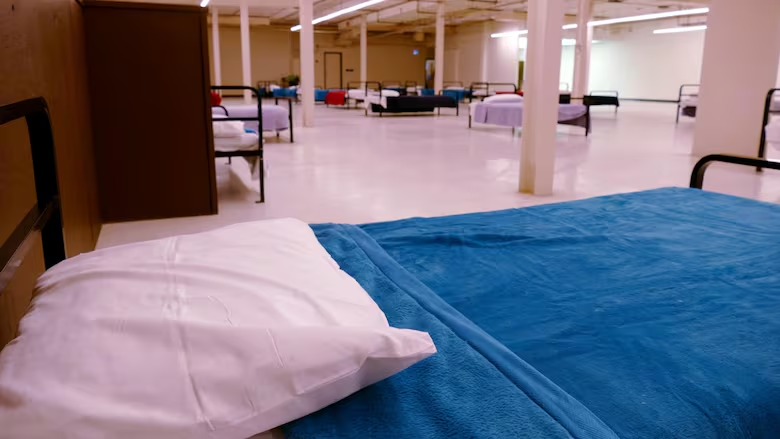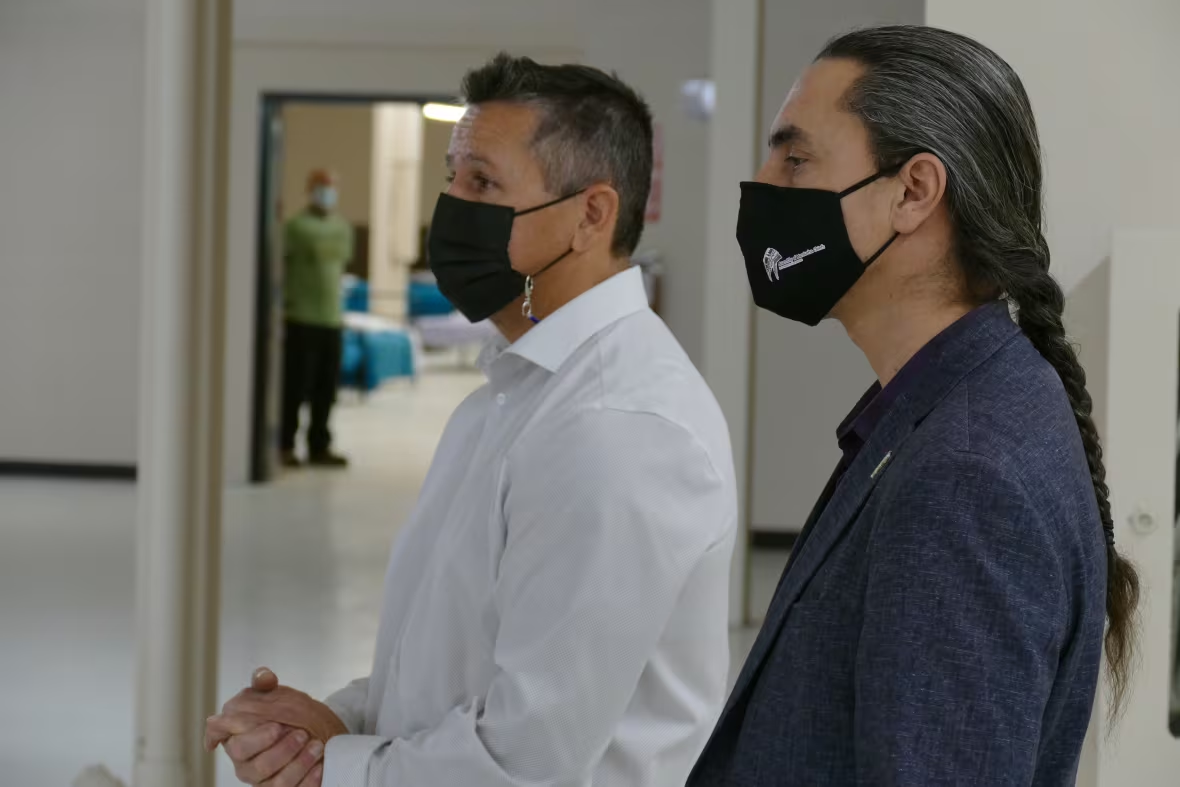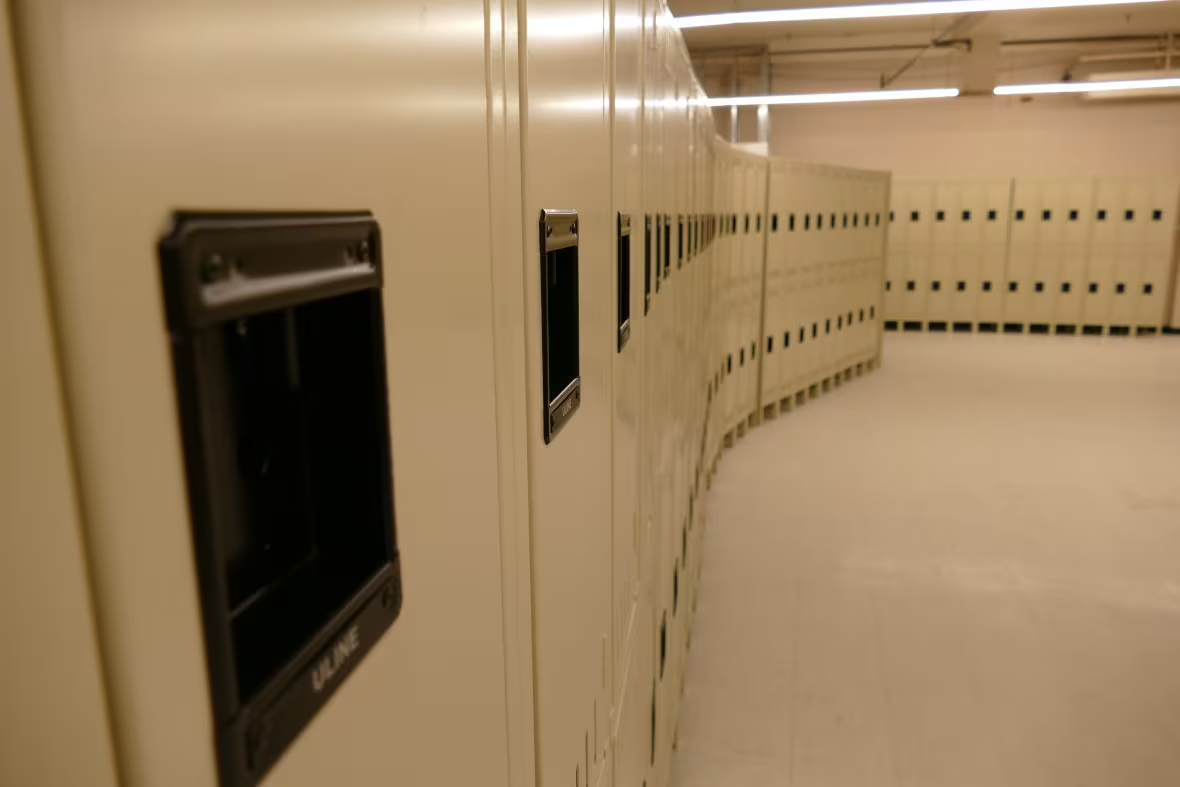New Indigenous-led 24/7 warming shelter for up to 150 people opens in Winnipeg
Warming shelter mostly staffed by Indigenous people with cultural knowledge, information on local services

A new Indigenous-led shelter opened its doors on Wednesday in downtown Winnipeg to provide a culturally-appropriate place for people needing place to sleep or just to warm up.
N'Dinawemak — Our Relatives' Place at 190 Disraeli Freeway is a 24/7 winter warming space for up to 150 people this season.
It's wheelchair accessible, low-barrier and offers showers and food around the clock, as well as beds and chairs for keeping warm.
End Homelessness Winnipeg CEO Jason Whitford says the need for N'Dinawemak is obvious.
"We all see it when we travel downtown or we see the news and some of us Indigenous people, we have our own cousins or relatives that are on the streets. We see the impact in our community and the despair," he said.
"I think we all have a responsibility to keep to keep a resource like this going to support our marginalized population."

At this time, N'Dinawemak is set to operate until the end of April, but Whitford says the organizations involved are going to be putting their heads together to ensure it stays up and running longer.
Not only is the shelter meant to meet the basic physical needs of visitors, but its staff will work to meet emotional and psychological needs as well.
"It'll be staffed by a majority of Indigenous staff that are culturally informed and knowledgeable of trauma and connected to resources in the community," Whitford said.
"We're still going to work closely with with the shelters and the entire homeless sector towards better servicing our community and the resources that our people need."
Grand Chief Arlen Dumas of the Assembly of Manitoba Chiefs calls the move "awe-inspiring," especially because it came together so quickly.
"A month and a half ago, this wasn't in existence," he said.
"It's a culmination of many people's efforts to try to provide service and look out for people who need some help."

Dumas said many of the people seeking shelter at N'Dinawemak have been touched in some way by residential schools or the child welfare system, and have a great deal of trauma to unpack.
"Probably many of them, this will be the first time where there's a meaningful effort to address some of the difficulties that they've had," he said.
"When I see the collaboration and the desire for people wanting to help it's through these ways, through a First Nations-led initiative that we'll direct and provide meaningful results so that we can help address some of the issues that affect First Nations."
With files from Jeff Stapleton

